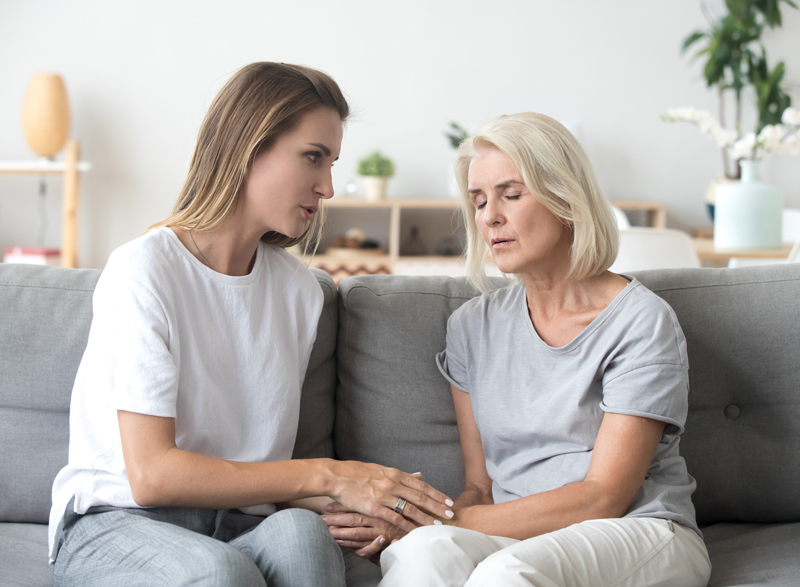
As we age, certain events in our lives can cause problems later on.
A lot of our kupuna develop difficulty holding their urine and stool so much so that it affects their way of life.
Problems with peeing and pooping can prevent them from going out and enjoying the stuff they usually enjoy. For example, they might stop walking and exercising, which can lead to weakness, depression and memory problems.
So what can we do to prevent this from happening?
To find solutions, we need to learn more about what’s causing the issue.

Common Reasons Why You REALLY Need to Go
Holding our urine and stool until the appropriate place and time is available is both an automatic and controllable event that we usually don’t worry about until it causes problems.
Certain conditions like diabetes and nerve problems related to neurologic issues can cause loss of our ability to hold in our urine or stool.
These conditions can also cause the opposite problem – not being able to release urine and stool, causing urinary retention and constipation.
Pelvic muscles that support structures like the colon as well as the bladder can weaken due to previous trauma related to normal vaginal delivery or abdominal and pelvic/prostate surgeries.
These same organs can prolapse and not be in their usual place, causing their sphincters to open up and release their contents at the wrong time.
Stress – whether psychological or physical from events like coughing, sneezing and lifting heavy items – can also cause incontinence.
Certain drinks and medications will increase your trips to the bathroom.
Caffeinated beverages like soda, coffee and tea are the usual suspects.
Certain medications like furosemide (Lasix) and hydrochlorothiazide (antihypertensive) provide their effect by intentionally making you pee the fluid out.
Medications like senna, Dulcolax and MiraLAX can cause increased stool output.
Lastly, the presence of infections, urinary tract infections (UTIs) or diarrhea can cause the same presentations.
How to Help
What can you do to help your parents or loved one experiencing these problems?
First, have an honest conversation with them.
Talk to them in a private setting and in a nonjudgmental way.
A lot of times, they don’t want to acknowledge the problems because they are ashamed. Knowing that the problem exists is the first thing we need in order to know how to address it.
Next, ask them when this occurs. Is it only during coughing, laughing, sneezing or lifting heavy things?
Maybe this is stress incontinence.
Do they lose control after having the urge to go and not reach the toilet on time? Maybe it is urge incontinence.
Do they experience both of these situations? Maybe they have mixed incontinence.
Are they constipated? Do they have an infection? Do they have uncontrolled diabetes or worsening back pain?
These issues can cause urinary or stool retention that can mimic incontinence because of urine or stool leakage. However, in reality your loved one has no way of emptying their bladder and bowels.

If this is the case, a doctor may need to evaluate them. Usually, treating the underlying cause solves the problem or improves their symptoms.
If incontinence is present, simple pelvic exercises can be very helpful.
Kegel exercises can be taught by a physical therapist. YouTube videos are also available online.
Some of our elderly have back problems, so having a professional therapist evaluate them doing the exercises during the first few sessions may be a good idea.
Patients who have urge incontinence benefit from timed bladder emptying. This is done by scheduling frequent toilet breaks in order to empty the bladder before it becomes full. Starting with hourly breaks, you can progress by increasing the timed breaks by 30 minutes.
Bring up these problems with their primary care physician (PCP) during their next visit so their PCP can perform a physical exam and review their medications.
The PCP might be able to offer recommendations that might be able to stop some of the issues so they can perform their activities during the daytime.
I do not recommend decreasing a patient’s fluid intake unless there is a related condition such as heart failure, sodium-electrolyte problems or kidney problems.
However, spacing out fluid intake throughout the day and cutting down on bladder irritants like caffeinated beverages would definitely help.
If you want to explore other treatment options, consultation with a specialist like a urologist or an OB-GYN would be the next step.
They will do a pelvic exam to see if there are structural problems that they can fix. This type of specialist can also provide medications to help.
For bowel problems, a consult with a gastroenterologist might be necessary to rule out more-serious problems.
Lastly, if you’ve done all these things and are still having problems, there are a lot of products available on the market that can provide great support so your parents and loved ones can continue being independent and live their best possible life.
Some insurances even cover it.
Your PCP might need to prescribe it for you, so schedule an appointment to begin the conversation and find relief.
Published on: April 9, 2019





